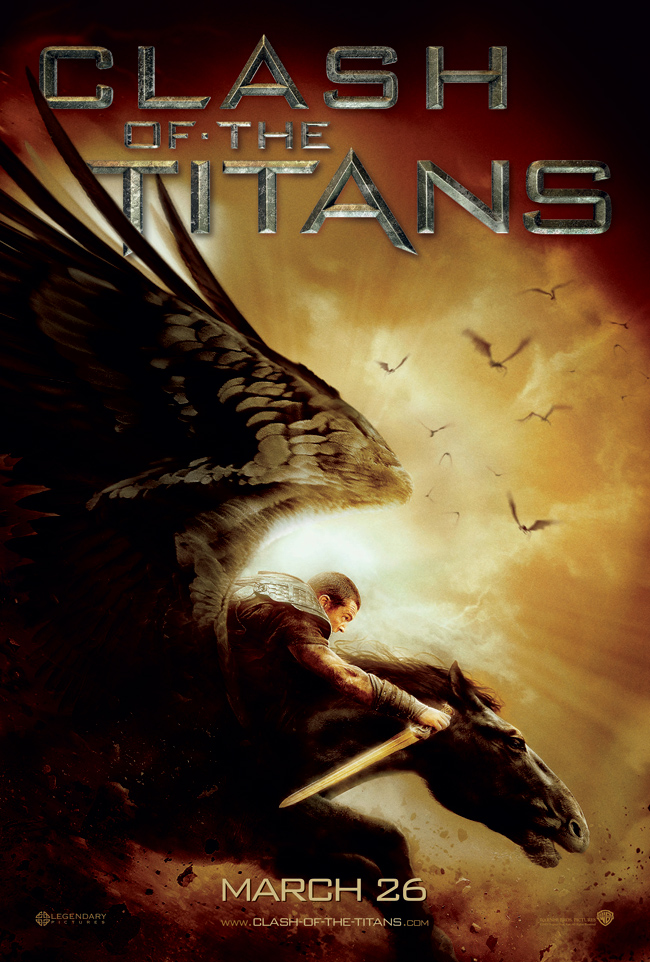I recently watched both Legion and the new version of Clash of the Titans. While neither movie is great, they do have a common theme; The relationship between humans and their creator(s). Both deal with man abandoning his god(s) and then being attacked by those self same god(s). I found it interesting and probably wouldn’t have noticed it If I hadn’t watched the two movies so close together.
Movies and literature are sometimes able to reflect what our society is feeling or our current trends. They often do so in a subtle way (zombies=commercialism/social conformity). I won’t pretend that either Legion or Clash of the Titans were subtle, but what were the movies really saying and what does that reflect about current society.
In Legion, God is tired of mankind and just decides to wipe us off the Earth. He sends down angels that are more like demons to possess and kill as many people as possible. The title of course comes from the bible quote “My name is legion, for we are many.” The quote deals with a possession by demons. It is worth note that the actual Greek word used is more like country or the space between two limits or an empty expanse (Wikipedia). The movie specifically applies the term legion to the angels that God has sent down to wipe out mankind. The hero is, of course, a fallen angel. The actual roles of good and evil are turned on their heads. The baby, is a Christ figure, but he comes not from a virgin birth but is a child born out of wedlock after the father runs off.
Clash of Titans goes farther. Man is tired of being ruled by the Gods and rebels against them. Mankind is sure of the existence of the gods and actually has encounters with them, but wants to cast them aside. Even though they realize that they were created by the gods and that the gods can destroy them they rebel against their worship, mostly for prideful reasons. The queen felt she was more beautiful than Hera or some goddess, I can’t remember, and the king wanted the people to bow to him and not to Zeus. The people who still chose to worship the gods were represented by the crazy “the end is nigh” guy.
As you can see, both movies question religion and the role of a God or gods. In the end of both movies we find the gods caring and forgiving and willing to pass along the rule of the land to humanity. In both movies, the gods seem willing to take a back seat and fade into nothingness. This, I think is the intended reflection on society. Humanity, currently would like to give up on the whole god system. As a whole, we want to become our own gods. People are mislead to believe that science can explain life, while it can’t. I am not sure these movies realized what they were doing. Actually, I am pretty sure they didn’t. So, there is no way of knowing if they were celebrating or critiquing it.
Regardless of the movie themes of God giving up on us or us giving up on God, the outcome is the same. People no longer have faith, or have misplaced their faith in man. As a Christian, I feel it is encouraging that these movies were not well accepted. Maybe the messages of these movies don’t represent our society.
Or maybe I just over analyzed two mediocre movies.
Monday, November 01, 2010
Subscribe to:
Post Comments (Atom)












No comments:
Post a Comment